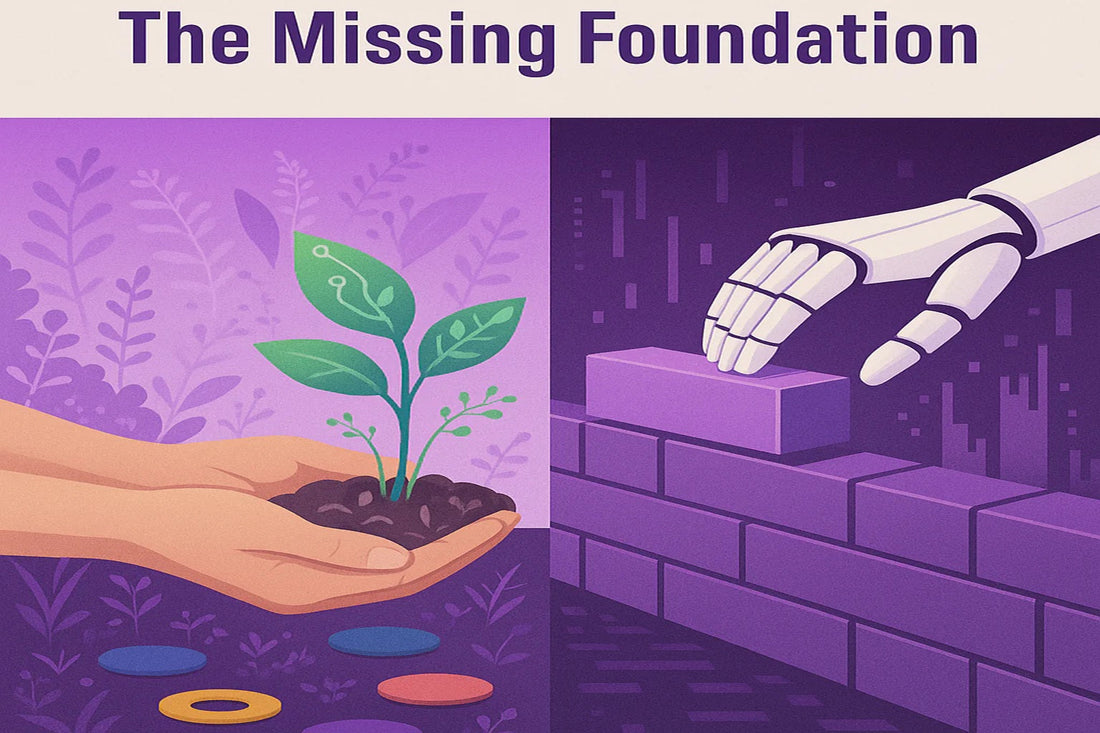
What is Ethical AI Wellbeing? The Missing Foundation
Share
Most conversations about AI ethics focus on preventing harm. But what if we flipped the script? What if, instead of just avoiding damage, we actively designed AI systems that enhance human growth?
That's the heart of ethical AI wellbeing, a framework that goes beyond compliance to create technology that genuinely supports human thriving.
The Gap in Current AI Ethics
Traditional AI ethics often feels like a checklist: avoid bias, ensure transparency, protect privacy. These are crucial, but they’re defensive. They tell us what not to do, not what we should build toward.
Ethical AI wellbeing asks a different set of questions: How can AI amplify human potential? How can it strengthen our connections, improve decision-making, and support mental and emotional health?
This isn’t about making AI “nice.” It’s about recognising that human wellbeing and AI performance are intertwined. When people feel confident, supported, and aligned with their tools, both humans and AI systems perform better.
The Three Pillars of Ethical AI Wellbeing
1. Psychological Safety in AI Interactions
People need to feel safe making mistakes, asking questions, and maintaining their authentic voice when working with AI. This means designing systems that:
- Preserve human agency in decision-making
- Allow for uncertainty and learning
- Respect diverse communication styles and cultural contexts
2. Identity Preservation
As AI becomes more sophisticated, there’s a risk that people lose confidence in their own judgment or feel displaced. Ethical AI wellbeing ensures that:
- Human expertise remains valued and visible
- People can maintain their professional identity alongside AI tools
- Technology adapts to human ways of thinking, not the other way around
3. Connection Over Efficiency
While AI can accelerate processes, ethical AI wellbeing prioritises meaningful outcomes over speed. This includes:
- Maintaining human-to-human connections in AI-mediated interactions
- Designing AI that enhances empathy rather than replaces it
- Creating space for reflection and intentional decision-making
Why This Matters Now
We’re at a critical moment. The AI systems we build today will shape human experiences for decades. If we focus only on preventing harm, we miss the opportunity to create technology that truly supports human flourishing.
Organisations embracing ethical AI wellbeing are gaining a competitive edge. Teams supported by AI tools are more creative, collaborative, and resilient.
Moving Forward
Ethical AI wellbeing is an ongoing practice. Organisations must continuously assess whether their systems contribute to human thriving.
The question is whether AI changes will enhance our humanity or diminish it. Ethical AI wellbeing gives us a framework to choose enhancement.
Ready to explore how ethical AI wellbeing can transform your organisation? Book a consultation to discover frameworks that put human support at the heart of your AI strategy.

